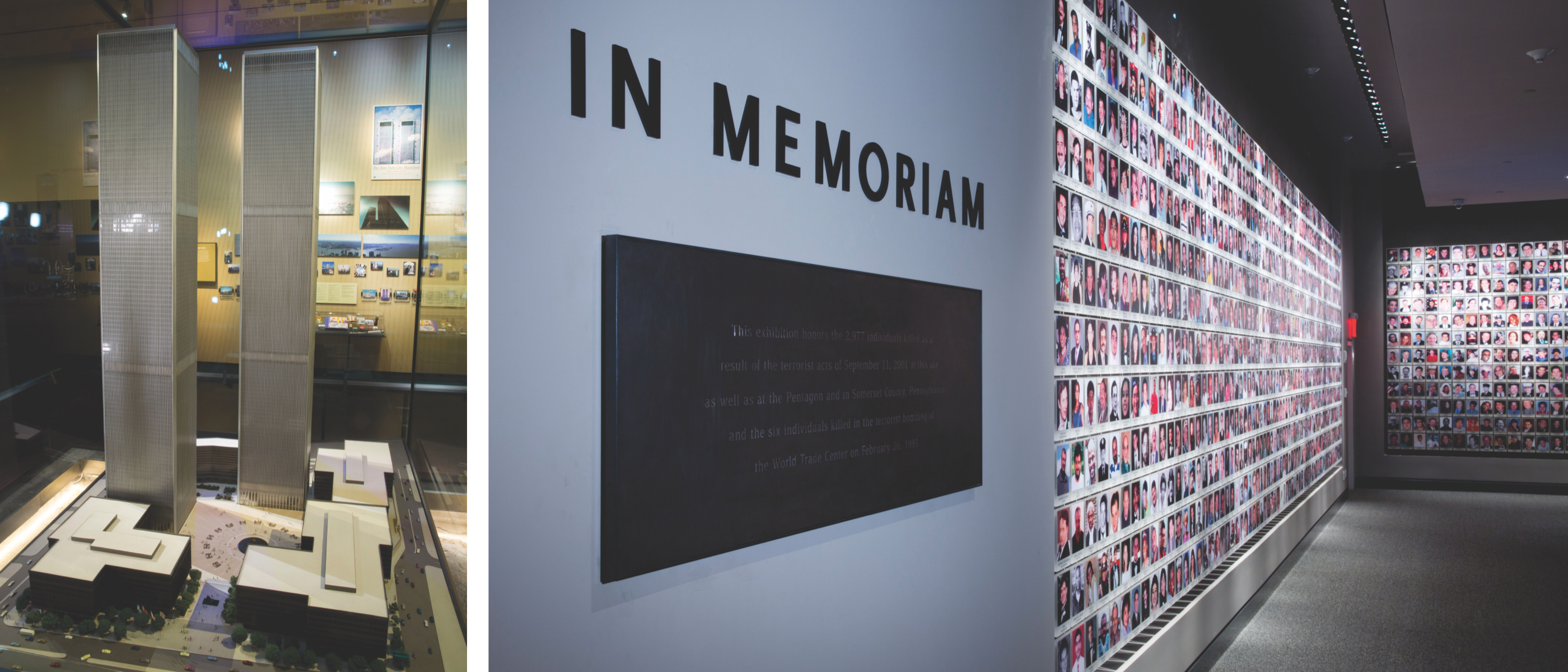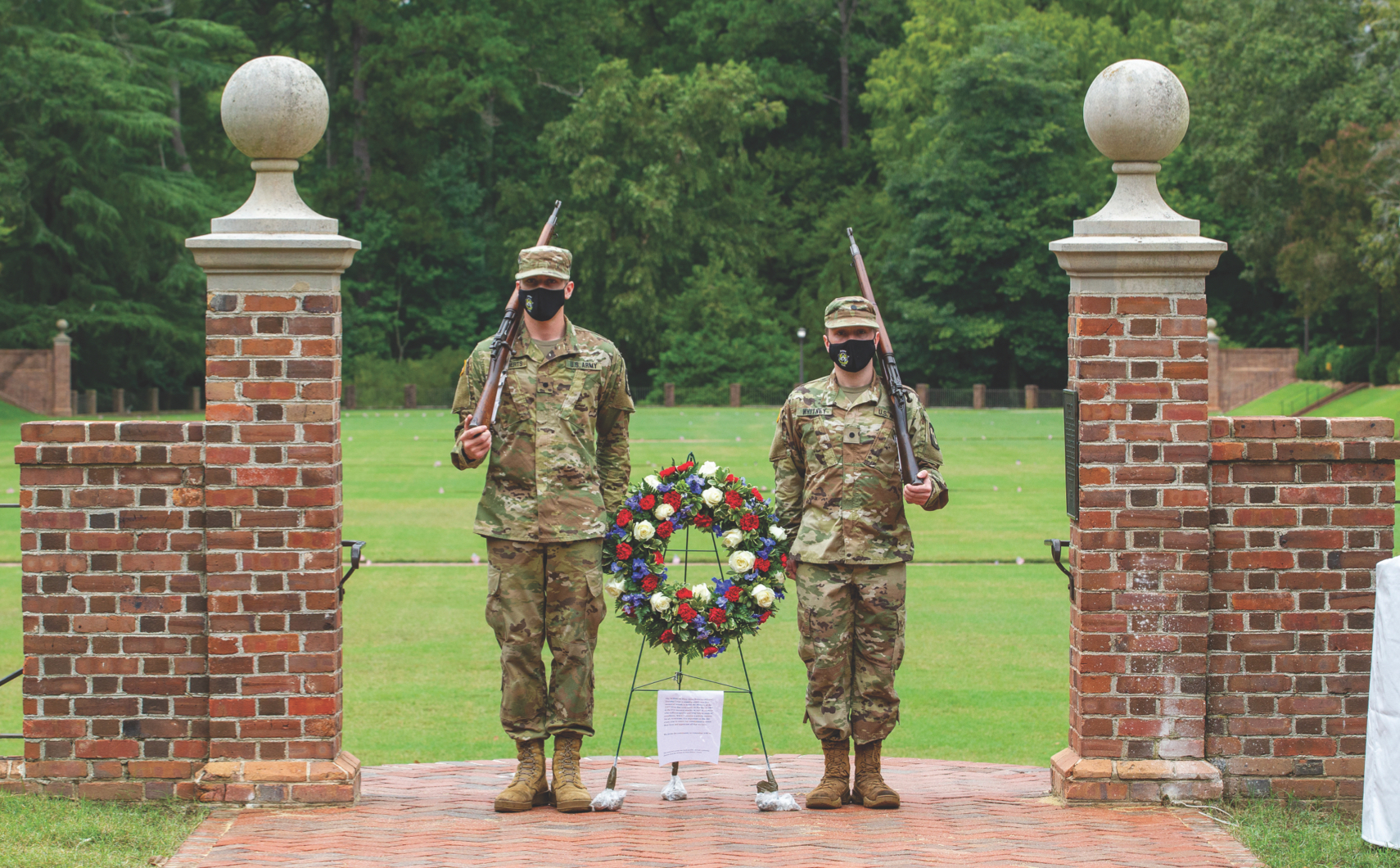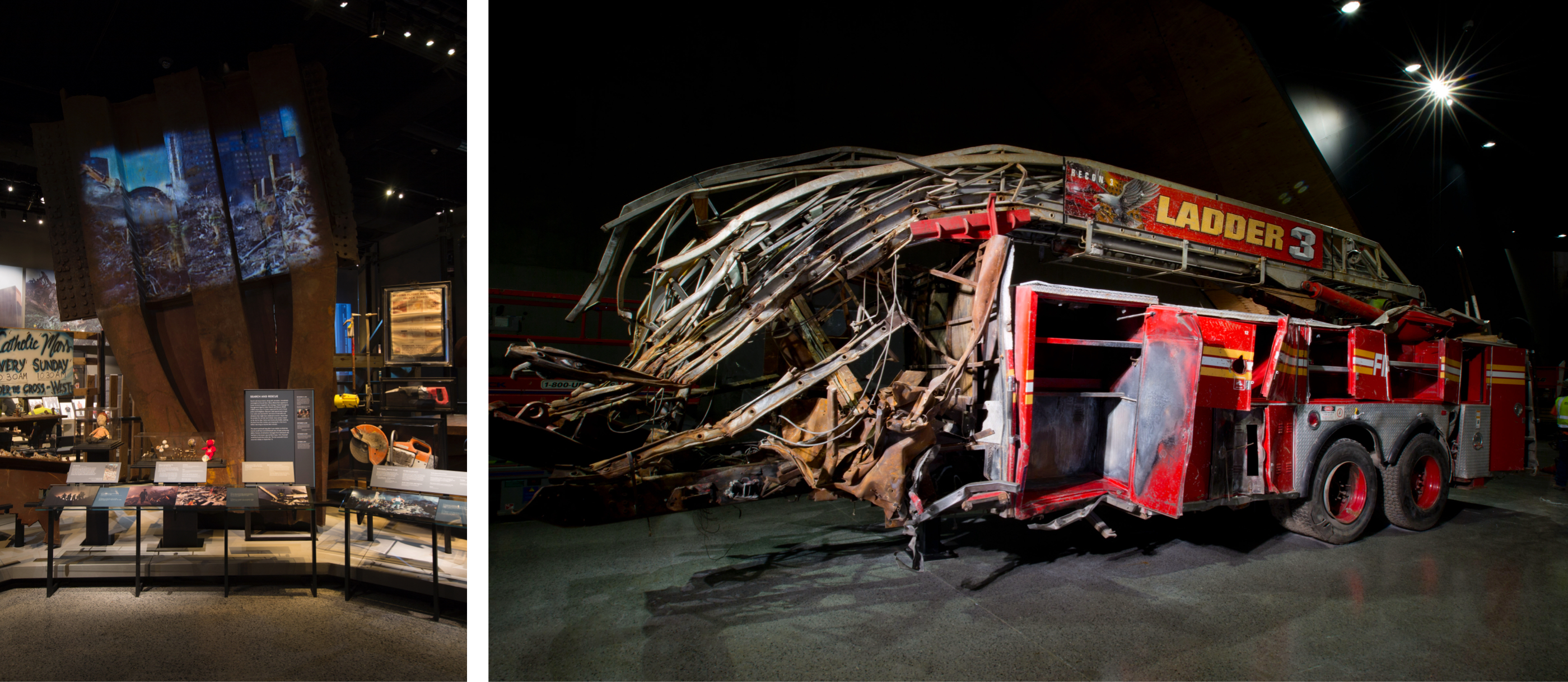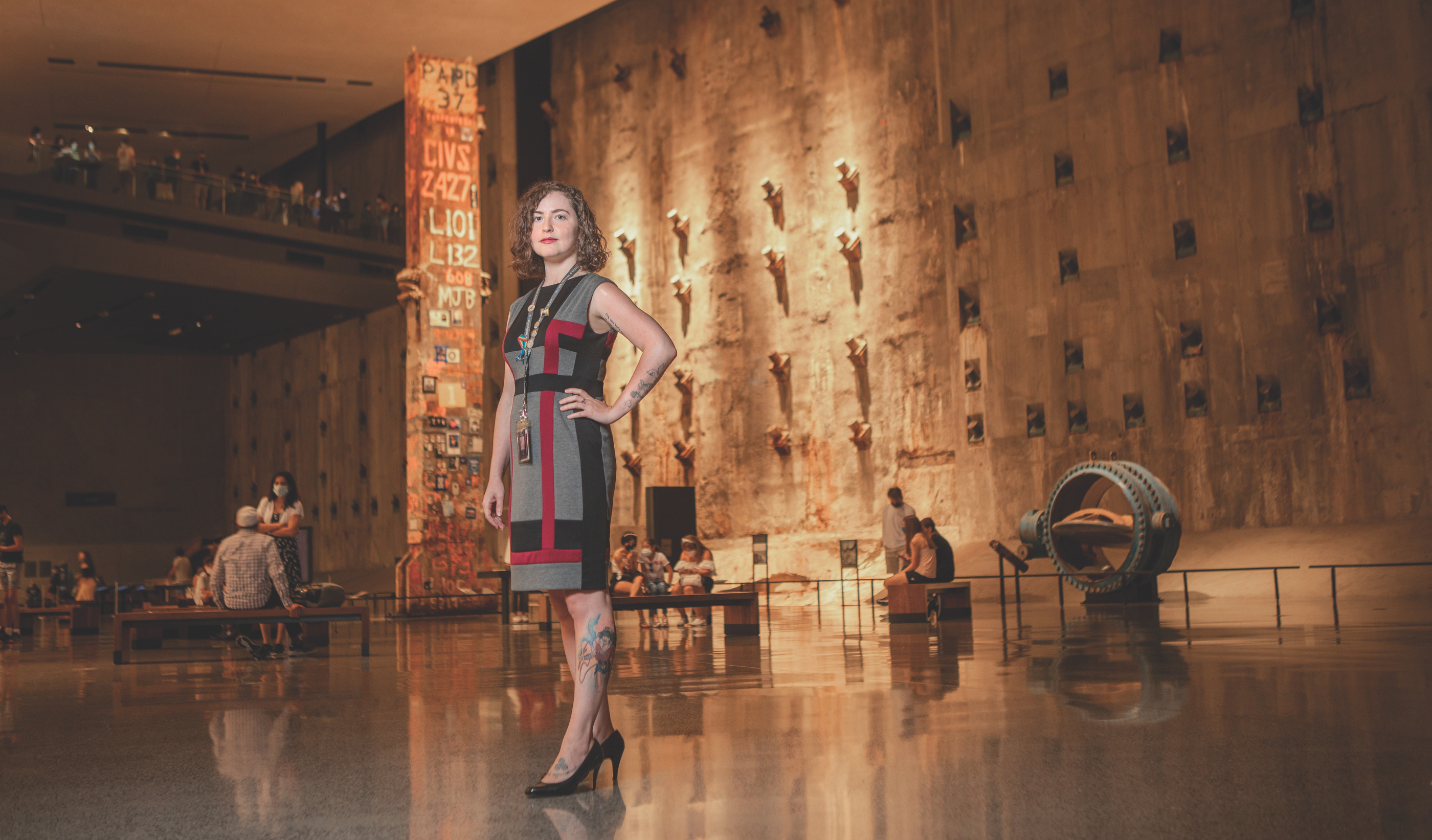Joyce challenged the interpreters to examine their own preconceptions in order to become more effective educators. “This is something that we talked about in training. What is the difference between genuine ignorance and aggravation or malice? What can we do to make sure that we’re not contributing to this interaction?”
The curriculum Joyce developed is now an integral part of interpreter training. “I’m pleased to say it’s been very successful.”
'An Amazing Moment'
In her current position, Joyce manages all of the volunteer docents, who are stationed at positions around the site to provide further detail to visitors, complementing the work of the tour guides. Many of the docents are 9/11 stakeholders, who had direct experience of the event.
Understandably, there are other stakeholders who have been reluctant to visit the site. “For some, they don’t want to go back because it was so traumatic. For others, there was a very real fear that the museum would not do the story justice,” Joyce says.
“So it’s always very special when someone tells me, ‘I wasn’t ready before, but I’m here now. I’m so glad that I came.’”
Joyce vividly recalls one particular interaction with a stakeholder. “I had just wrapped up a tour and was answering questions. One of the gentlemen on my tour, who hadn’t spoken previously, said, ‘I was here at the twin towers.’ And he told me his story,” Joyce says.
“Once he got out of the towers, the man starting walking north toward his home outside the city. By the time he got to Harlem, his shoes were falling apart. A stranger stopped him on the street, took off his shoes and gave them to him. And then this man called a friend who had a car and said, ‘We’re going to get you where you need to go.’
“It was an amazing moment.”
Honoring History
Being immersed in the retelling of the 9/11 story on a day-to-day basis is not an easy undertaking. “Focusing on the facts, the concrete information, can help,” Joyce says. “But it sneaks up on you when you don’t expect it — for example, when someone on your tour looks emotional. We spend a lot of time as an institution talking about self-care and the importance of stepping back from time to time.
“And then of course there’s the mission — that feeling that you’re doing something important in honoring these lives and telling these stories,” she says. “It’s been a privilege to interact with the men and women who were part of the event, and those who weren’t and who want to learn about what happened here.”
The museum has developed a free 20th anniversary webinar for teachers and students.



